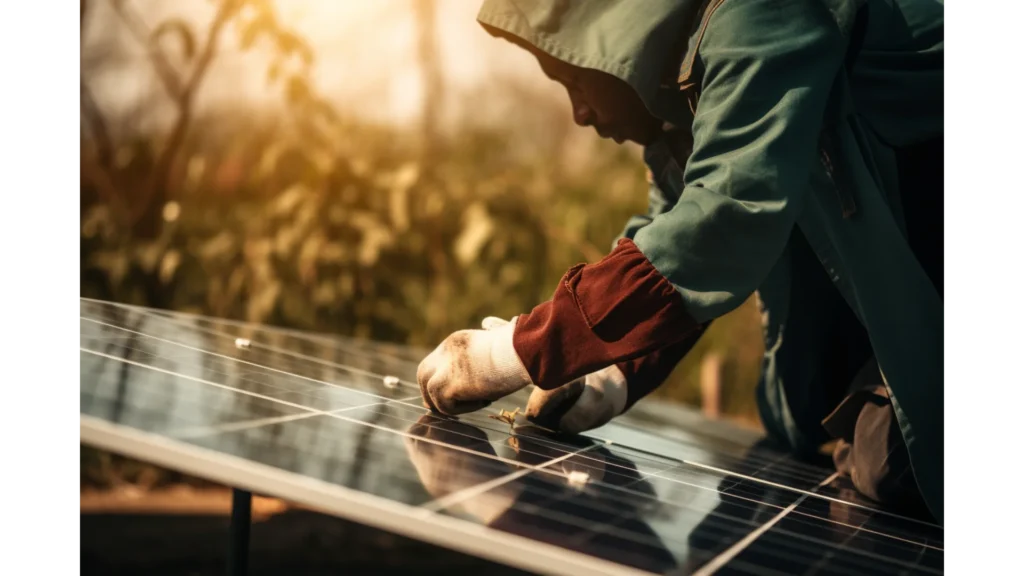
As solar energy becomes more popular, more and more people are turning to solar panels as a way to power their homes and businesses. While solar panels require little maintenance compared to other energy sources, they still require some upkeep to ensure they are working at their best. In this article, we will explore the different types of maintenance that solar panels require to keep them functioning efficiently and effectively.
One of the most important aspects of solar panel maintenance is regular cleaning. Solar panels can become covered in dirt, debris, and even bird droppings over time, which can decrease their efficiency. It’s important to clean the panels regularly to ensure that they are absorbing as much sunlight as possible. Additionally, it’s important to check for damage and wear, monitor performance and efficiency, and upgrade and replace components as necessary to ensure that your solar panels are functioning at their best.
To keep your solar panels running efficiently, it’s important to regularly clean them. This is because dirt, dust, and debris can accumulate on the panels’ surface, reducing their ability to absorb sunlight. When this happens, your solar panels won’t be able to generate as much electricity as they could, which can impact your energy savings.
Fortunately, cleaning your solar panels is a relatively simple process. You can use a soft-bristled brush or a microfiber cloth to gently wipe away any dirt or debris on the surface of the panels. You can also use a hose to rinse the panels with water. Just be sure to avoid using harsh chemicals or abrasive materials that could scratch or damage the panels. By cleaning your solar panels regularly, you can help ensure they continue operating at peak performance and generate the maximum amount of energy possible.
Checking for any signs of wear and tear on your solar panels is crucial to ensuring their longevity and optimal performance. Inspecting your solar panels at least once a year for any visible damage, such as cracks, chips, or dents is recommended. This can be done by looking at the panels and examining their surfaces for irregularities. If you notice any damage, getting it repaired as soon as possible is important to avoid further issues.
In addition to physically inspecting the panels, it is also important to keep an eye on their performance. If you notice a decrease in energy production or efficiency, it could be a sign of damage or wear on the panels. Monitoring your solar panels’ performance can be done through a monitoring system or by checking your energy bills to see if they are producing less energy than usual. Addressing any issues with your solar panels promptly can help extend their lifespan and save you money in the long run.
Make sure you monitor how efficiently your solar panels produce energy, as monitoring their performance can help you identify any issues that need to be addressed sooner rather than later. One way to do this is by checking the production output regularly and comparing it to the expected output based on weather patterns and other factors. If you notice a significant decrease in output, it could indicate a problem with the panels, wiring, or inverter.
In addition, you should also monitor the efficiency of your solar panels. This can be done by tracking the amount of energy produced per unit of sunlight received. If you notice a decrease in efficiency over time, it could indicate a buildup of dirt or debris on the panels or other issues that need to be addressed. By regularly monitoring the performance and efficiency of your solar panels, you can ensure that they are functioning properly and maximize their lifespan and energy production.
You can improve your solar panel system’s performance and extend its lifespan by upgrading and replacing components as necessary. One of the main components that may need upgrading is the inverter. Inverters are responsible for converting the direct current (DC) electricity produced by the solar panels into alternating current (AC) electricity that can be used in your home. Over time, inverters may become less efficient or even fail altogether. Upgrading to a newer, more efficient inverter can help increase the amount of energy your system produces and reduce the risk of system downtime.
Another component that may need upgrading or replacing is the solar panels themselves. While solar panels are designed to last for decades, they can become damaged or worn out over time. If you notice that your panels are not producing as much energy as they used to, it may be time to replace them. Upgrading to newer, more efficient panels can also help increase your system’s energy output and improve its overall performance. Regularly upgrading and replacing components ensures that your solar panel system is running at peak efficiency and will continue to produce clean, renewable energy for years to come.
If you want to ensure your solar panel system is operating at its best, it’s essential to have a professional handle on maintenance and repairs. A professional will have the necessary tools and knowledge to properly maintain and repair your solar panels. They can also identify any potential issues before they become major problems, saving you time and money in the long run.
During a maintenance check, a professional will inspect your panels for any damage or wear and tear. They will also clean your panels to ensure maximum efficiency. In addition, they will check your wiring, inverters, and other components to ensure everything is working as it should. If any repairs are needed, a professional can handle them quickly and efficiently, ensuring your system is back up and running in no time. By investing in professional maintenance and repairs, you can extend the lifespan of your solar panels and save money on energy costs in the long run.
In conclusion, solar panels require regular maintenance to ensure that they continue to function properly and efficiently. This maintenance includes cleaning the panels, checking for damage and wear, monitoring their performance and efficiency, and upgrading or replacing components as needed. It is important to have a professional perform maintenance and repairs on the panels to ensure their longevity and effectiveness.
Overall, investing in solar panels is a great way to reduce your carbon footprint and save money on your energy bills. By properly maintaining your panels, you can ensure they continue providing clean, renewable energy for years to come. So, if you are considering installing solar panels, be sure to factor in the cost of maintenance and repairs to ensure that they continue to provide maximum benefits
Solar panels typically last for 25-30 years before needing to be replaced. However, their lifespan can be extended with proper maintenance. Regular cleaning of the panels to remove dirt and debris is important to ensure maximum efficiency. Additionally, checking for any damage or wear and tear on the panels and replacing any faulty components can also help extend their lifespan. Overall , solar panels can provide reliable energy for decades with proper care and maintenance.
Solar panels can be vulnerable to damage from extreme weather conditions such as hail or heavy snowfall. Hailstones can cause dents or even punctures in the panels, while heavy snow can add weight and put pressure on the panels, potentially causing them to crack or break. It is important to regularly inspect the panels for any signs of damage and address any issues promptly to ensure optimal performance and longevity. In addition, regular cleaning of the panels can help prevent damage from debris or buildup, which can accumulate over time and hinder their efficiency.
If a solar panel malfunctions or stops producing energy, it could be due to a variety of reasons, such as wiring issues, faulty components, or environmental damage. It is important to have regular maintenance and inspections to prevent such issues and ensure optimal performance. However, in the event of a malfunction, a professional technician should be contacted to diagnose and repair the problem. It is also important to note that most solar panels come with warranty coverage for a certain period of time, which can provide peace of mind in case of unexpected issues.
To ensure optimal performance and longevity of your solar panels, it is crucial to have them inspected regularly by a professional. While the frequency of inspections may vary based on the manufacturer’s recommendations, having your panels inspected at least once a year is generally advised. During these inspections, a professional can identify any potential issues or malfunctions and address them before they become major problems. Regular maintenance can also help extend your solar panels’ lifespan, ultimately saving you money in the long run. So, if you want to get the most out of your solar investment, make sure to schedule regular inspections with a trusted professional.
When performing maintenance on solar panels, it is crucial to take necessary safety precautions to ensure your well-being. Before starting any work, make sure the panels are turned off and not generating any electricity. Wear protective gear such as gloves, goggles, and non-conductive shoes. It is also important to be aware of the surrounding environment and any potential hazards, such as slippery surfaces or overhead power lines. By taking these precautions, you can perform maintenance on your solar panels safely and efficiently.
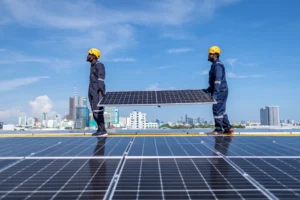
What Are The Most Common Mistakes When Getting A Residential Solar? Share: Facebook Twitter LinkedIn Pinterest The most Common Mistakes When Getting A Residential Solar
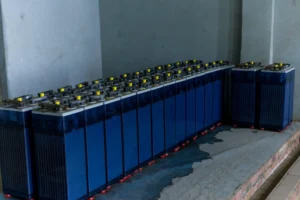
How Do I Maintain The Batteries In My Off-Grid Solar Panel System? Share: Facebook Twitter LinkedIn Pinterest Off-grid solar panel systems have become increasingly popular
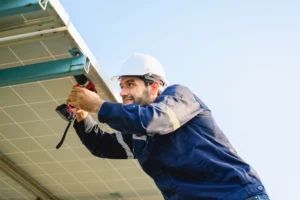
How Do I Ensure My Solar Panel System Is Safe And Meets Building Regulations? Share: Facebook Twitter LinkedIn Pinterest As more and more homeowners opt
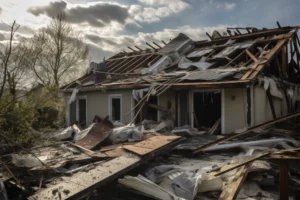
What Are The Most Common Causes Of Damaged Solar Systems? Share: Facebook Twitter LinkedIn Pinterest Solar energy is becoming an increasingly popular renewable source for
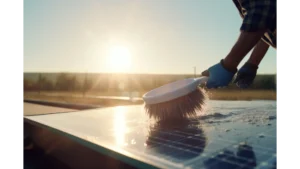
How Do I Maintain And Clean My Solar Panels? Share: Facebook Twitter LinkedIn Pinterest Maintaining and cleaning your solar panels is essential to ensure they
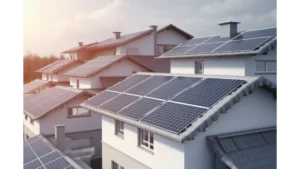
What Warranties Are Available For Residential Solar Panels Share: Facebook Twitter LinkedIn Pinterest Homeowners righfully ask “What Warranties Are Available For Residential Solar Panels ?”